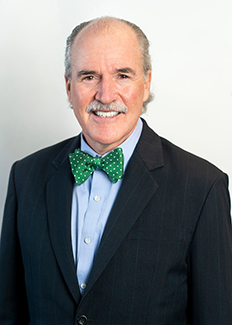Celebrating 55 years of advancing science for global health
June 30, 2023
As we mark the 55th anniversary of the Fogarty International Center, we can reflect with great pride and gratitude on the incredible achievements and lasting impact that we have made in advancing global health research and research capacity strengthening. Since its
establishment in 1968, Fogarty has been a beacon of collaboration, fostering partnerships across borders and driving scientific discovery to address the world's most pressing health challenges.
 Read recent
blogs and articles from Acting Fogarty Director Dr. Peter Kilmarx.
Read recent
blogs and articles from Acting Fogarty Director Dr. Peter Kilmarx.
Over the course of his 26 years representing Rhode Island in Congress (1941-67), Rep. John Edward Fogarty was a champion for NIH and for the value of medical research. He advocated for international health research to reduce suffering and foster peace and prosperity throughout the world and had long argued for the creation of an international health research institute at NIH. His sudden death of a heart attack in 1967 provided the catalyst that finally brought his "Health for Peace" center into existence. On July 1, 1968, President Lyndon Johnson issued an Executive Order establishing the John E. Fogarty International Center for Advanced Study in the Health Sciences at the NIH to support international medical and behavioral research and to train international researchers.
Over the past 55 years, Fogarty has made significant contributions to global health research and capacity strengthening. Through our
grants and
programs, we have fostered collaborations between researchers from different nations, catalyzing knowledge exchange and cross-cultural learning. These collaborations have facilitated the development of innovative approaches to address a wide range of health issues, from infectious diseases to noncommunicable diseases and emerging threats including HIV/AIDS and the COVID-19 pandemic,.
Fogarty has played a pivotal role in building research capacity in low- and middle-income countries. By investing in training programs, we have strengthened local institutions, equipped them with the necessary tools and resources, and empowered researchers to lead their own investigations. Thus, the impact of our work extends beyond the duration of individual projects, leaving a lasting legacy of self-sufficiency and scientific advancement. It was especially gratifying to see
Fogarty grantees and former trainees play national and global leadership roles in the COVID-19 response, including genomic characterization and discovery of novel SARS-CoV-2 variants.
None of this would be possible without our grantees and mentors. They are the heart and soul of Fogarty. Their groundbreaking research and dedication to mentorship have shaped the landscape of global health. Through their collaborative efforts, they have
addressed critical research gaps, expanded scientific knowledge, and
developed innovative interventions that have transformed lives. Their unwavering commitment to training the next generation of global health leaders has been instrumental in building sustainable capacity in countries around the world.
At the core of our mission lies the
empowerment of trainees. Fogarty has nurtured and supported thousands of aspiring scientists, clinicians, and public health professionals, equipping them with the skills, knowledge, and networks to tackle global health challenges head-on. These trainees, hailing from diverse backgrounds and disciplines, are the future leaders who will drive progress in global health. Their passion, dedication, and fresh perspectives inspire us all and give us hope for a healthier and more equitable world.
Fogarty's achievements would also not have been possible without the invaluable support from and collaboration with the other NIH Institutes, Centers, and Offices (ICOs). By working together, we have been able to leverage expertise, resources, and infrastructure, amplifying the impact of our efforts. On a percentage basis, Fogarty receives more co-funding than any other NIH ICO. But more important is the intellectual partnership and networking among our research communities. Many of our trainees gain experience in the context of research programs supported by other ICOs, and many go on to research careers funded by these NIH partners. The
collective commitment of NIH to global health research has enabled us to tackle complex health challenges from multiple angles, fostering innovation and driving progress.
Lastly, I want to extend my deepest appreciation to the exceptional individuals who make up the Fogarty staff. Their passion, dedication, and tireless efforts are the driving force behind our success. Whether it is managing grants, facilitating collaborations, or providing invaluable guidance, our staff members embody the spirit of teamwork and excellence.
As we celebrate the 55th anniversary of the Fogarty International Center on July 1, 2023, let's take a moment to express our gratitude for our global health research community and the progress we have made in global health research capacity strengthening over these last five decades. And let's recommit ourselves to addressing remaining and emerging global health challenges through continued support of capacity strengthening around the globe.
More Information
To view Adobe PDF files,
download current, free accessible plug-ins from Adobe's website.